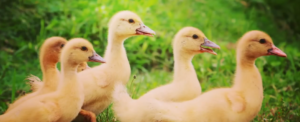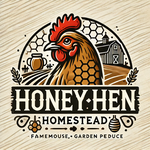
Living off the grid is a dream for many, a lifestyle that offers self-sufficiency, sustainability, and a deeper connection to the land. One of the key components of successful off-grid living is raising livestock. Whether you’re a seasoned homesteader or just starting your journey, choosing the right livestock for your off-grid farm is crucial. In this guide, we’ll walk you through the process of selecting the perfect animals to meet your needs and thrive in your off-grid environment.
Understanding Your Off-Grid Goals
Before diving into livestock selection, it’s essential to define your off-grid goals. What do you hope to achieve with your farm? Are you looking to provide food for your family, generate income, or both? Understanding your objectives will help you choose livestock that aligns with your vision.
Consider Your Space
Off-grid properties come in various sizes and landscapes. The amount of space you have will play a significant role in determining the type and quantity of livestock you can raise. Some animals, like cattle or goats, require more extensive grazing areas, while others, such as chickens or rabbits, can thrive in smaller spaces. Assess your property’s acreage and terrain to make informed decisions.
Climate and Environment
Off-grid living often means dealing with diverse climates and environmental challenges. Different livestock species have specific climate and habitat requirements. Consider the average temperature, rainfall, and seasonal changes in your area. Research livestock breeds that are well-suited to your climate to ensure their health and productivity.
Livestock Options for Off-Grid Living
Now, let’s explore some common livestock options for off-grid living:
1. Chickens
Chickens are a popular choice for off-grid homesteads due to their small size, low maintenance, and egg-laying capabilities. They thrive in most climates and provide a steady source of fresh eggs. Additionally, they can help control pests in your garden.
2. Goats
Goats are versatile animals that can provide milk, meat, and even fiber. They are hardy and adaptable, making them suitable for various environments. Depending on the breed, goats can thrive in cold or hot climates.
3. Sheep
Sheep are excellent grazers and can help maintain your pasture. They produce wool, meat, and milk, offering multiple sources of sustenance and potential income. Certain sheep breeds are well-suited to colder climates.
4. Cattle
For those with ample space, cattle can be a valuable addition to an off-grid farm. They provide a significant amount of meat and, with the right management, can enhance pasture health. Be sure to choose cattle breeds that match your climate.
5. Rabbits
Rabbits are efficient converters of feed into meat. They require minimal space and reproduce quickly, making them an excellent choice for off-grid meat production. Rabbits can adapt to various environments.
6. Ducks and Geese
If you have access to water on your off-grid property, ducks and geese can be raised for meat and eggs. They are well-suited to wetland areas and can contribute to pest control.
The Importance of Diversity
In off-grid farming, diversity is your ally. Consider a mix of livestock species that complement one another and meet your family’s needs. For instance, chickens and rabbits are an ideal combination for a small homestead. Chickens provide eggs, while rabbits offer meat.
Feed and Forage
Reducing the cost of animal feed is a significant benefit of off-grid farming. Many livestock can be raised on a diet of pasture and forage, particularly if you have enough land. Additionally, consider growing your own animal feed, such as corn or alfalfa, to further reduce costs.
Conclusion
Off-grid farming offers the opportunity for a sustainable and self-reliant lifestyle. By understanding your goals, assessing your property, and selecting the right livestock, you can build a thriving off-grid farm that provides for your family and contributes to your self-sufficiency. Remember that each off-grid journey is unique, so take your time to make informed choices that align with your vision of a simpler, more sustainable life.
This article provides essential guidance on choosing the right livestock for your off-grid farm. It emphasizes the importance of aligning your choices with your off-grid goals, property, and climate. Additionally, it suggests various livestock options and highlights the benefits of diversity in your animal husbandry practices.
